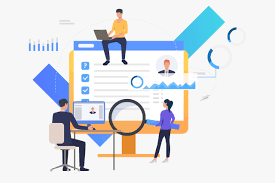
The advent of e-Learning platforms has revolutionized the way organizations approach training and development. For HR professionals, understanding these platforms is now essential. Here are key points to consider about e-Learning platforms.
Customization and Scalability: One of the most significant advantages of e-Learning platforms is their ability to be tailored to the specific needs of an organization. HR professionals must ensure the platform they choose can scale with the growth of the company and adapt to changing training requirements.
Accessibility and Flexibility: E-Learning enables employees to access training material anytime and anywhere, providing great flexibility. This means that HR needs to ensure that courses are accessible on various devices and cater to different learning speeds and styles.
Tracking and Reporting: E-Learning platforms typically offer robust tracking and reporting features. HR should understand how to use these tools to monitor employee progress, ensuring compliance with training mandates, and measuring the effectiveness of the training programs.
Engagement and Interactivity: The best e-Learning platforms engage users interactively. When selecting a platform, HR should look for features like gamification, interactive elements, and social learning opportunities that can enhance learner engagement.
Cost-Effectiveness: While costs can vary widely, e-Learning is often more cost-effective than traditional training methods. HR professionals need to weigh the costs against the benefits and consider long-term savings associated with such platforms.
Continuous Learning Culture: Promoting a culture of continuous learning can be facilitated by e-Learning platforms. They provide opportunities for ongoing professional development which can be integrated into the daily work routine.
In conclusion, e-Learning platforms offer numerous benefits but require careful consideration in terms of customization, accessibility, tracking capabilities, engagement strategies, cost-effectiveness, and cultural integration into an organization’s learning environment. HR professionals equipped with knowledge about these key factors will make informed decisions benefiting both employees and organizational growth.
